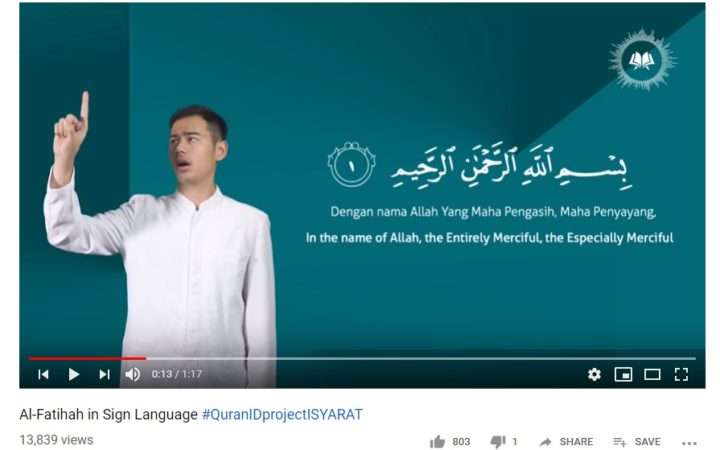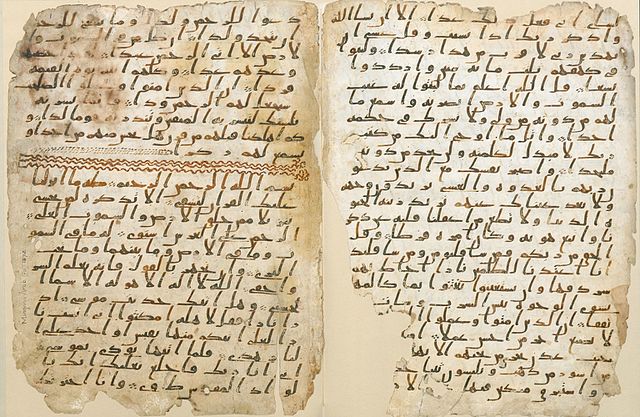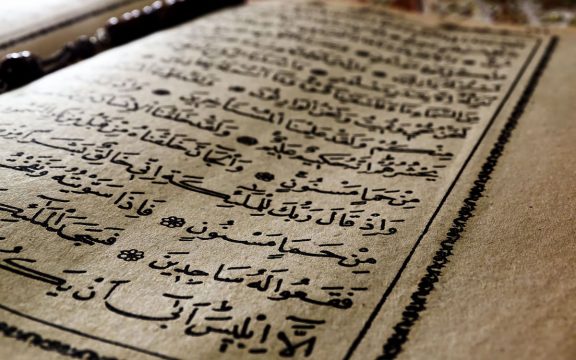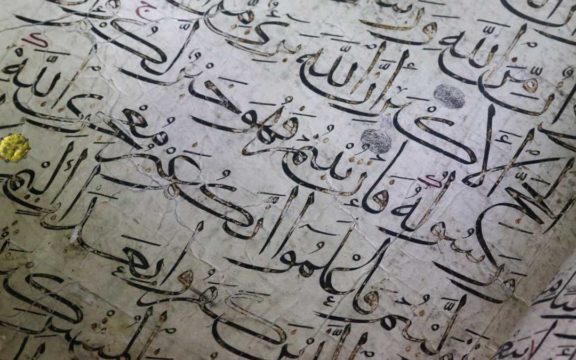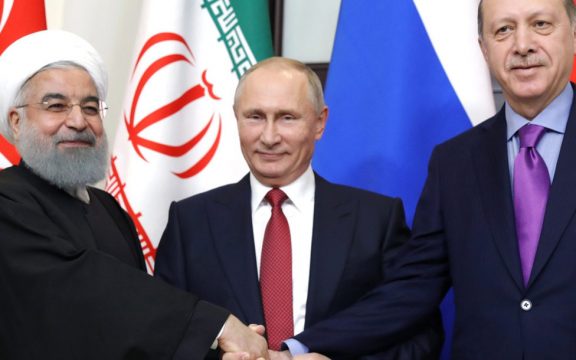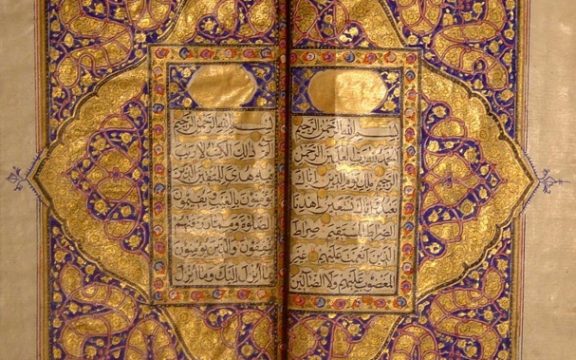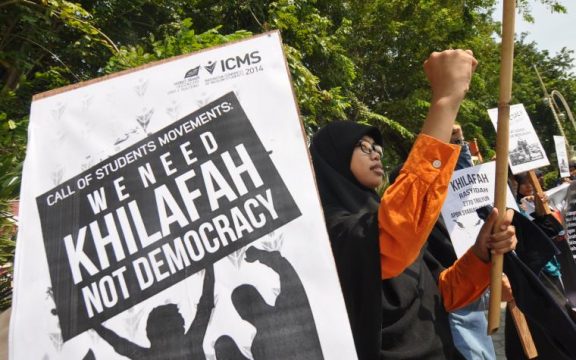Muslims around the world recite Quran during holy month Ramadan. Circle of reciting and discussing the meaning of Quran blossoms in every mosques, with more frequent time. Besides of fasting, to recite the holy Quran is among important tradition since the very first revelation occured in Ramadan.
Muslims in the world would gladly welcome the holy month, as the rewards would be doubled during the entire month. But for Mr. Surya and his close friends, the coming of Ramadan could be depressing. Not because of abstinence from eating and drinking, but the willing to read Quran is challenged.
Surya and his close friends are deaf.
“My deaf friends and I felt depressed because we didn’t have any way to help other deaf people to access Islam,” he said in an interview by New York Times, through a sign-language interpreter.
Surya has tried to overcome the challenge for the deaf Muslims. Since 2017, he teamed up with Quran Indonesia Project to produce sign language video, translating all surah in Quran. The videos are uploaded in YouTube channel. The project started since Ramadan last year.
The idea for sign language Quran began in 2017. With the help from Archie Fitrah Wirija, the founder of the Quran Indonesia Project, a non-profit group which initally campaigned with celebrities to encourage the youths to read Quran. Their work is slowly growing up to now.
As of 2015, there were 2.9 million deaf citizens in Indonesia, according to the Central Statistics Bureau. Even though activists believe the number is actually much higher. With the vast majority of Muslim, to teach Islam for the deaf does challenging.
Many deaf Muslims in Indonesia can read and memorize verses of Quran, but there are other challenge. There are few Muslim scholars who can communicate in sign language.
Therefore, the project not only help deaf Muslims to memorize the verses, but also to understand their meaning. For the purpose, plans to release an educational board game about the basics of Islam as well as 10 sign-language DVDs explaining some prayers.
“The videos also have their own message: If you want deaf Indonesians to learn Islam, they must learn sign language. Islam is not limited to what you read, but much more what you understand.”, said Mr. Surya about the project.
Surya recalled the struggle dealing with his deafness during his education, “when it came time during class to study Islam, I started crying because I didn’t understand.” he continues, “I was forced to live as a hearing person, and even today parents don’t want their children to sign; they want them to speak.”
The project itself is a breakthrough. There are few special education options for deaf children and limited access to public services in the country’s rural areas. Indonesian sign language was not even recognized by the Ministry of Culture and Education until 2016 and there are few government officials who can communicate in sign language.
But now, things are slowly changing. A small number of mosques across Indonesia have begun providing sign language interpreter for Friday sermon, or occasional religious ceremony. Sign language interpreter is now visible in many national TV stations in news and religious program.
Surya believes that the changes will grow, “We want to change the stigma of, ‘If you can’t talk, you are different.”
![Islami[dot]co](https://en.islami.co/wp-content/themes/jambualas/images/logo.png)
